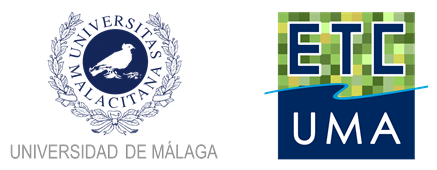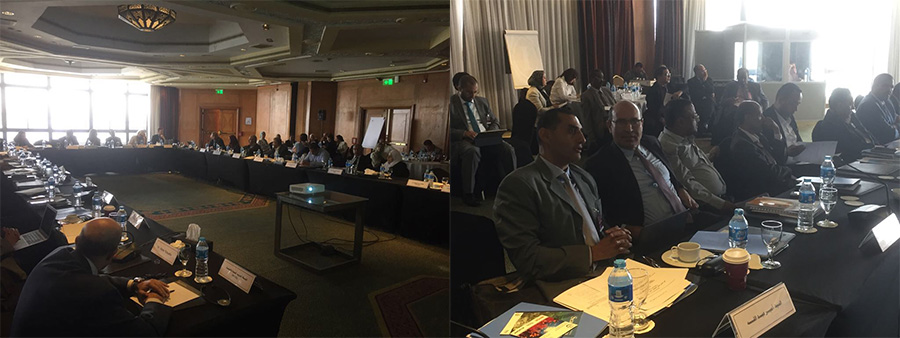Regional work in the Mediterranean and the possibilities of implementation in the Arab Countries have been the topic of the ETC-UMA contribution to the Consultative Meeting on the Implementation Framework for the Environmental Dimension of the 2030 Agenda in the Arab Region held in Cairo, Egypt, on 18-21 September 2017.
The availability and standardization of regional and national data from statistical research, spatial data analysis and modelling techniques is a shared concern among Mediterranean countries. The European Topic Centre of Malaga University (ETC-UMA), represented by Mr. Ameer Abdulla as Senior Expert, put on the spotlight the wealth of data available coming from different projects and initiatives such as SWOS, Med-IAMER and PANACeA and the potentiality to obtain feasible and comparable information at several scales and over time. This was showcased with the results of monitoring change over the last 20 years in Al Azraq river and dam in Jordan, where the loss of freshwater through time is affecting food security and human well-being as the agricultural potential in the area dries away and the population increases.
The possibility of combining several sources to develop cumulative impacts indicators is a potentiality to be exploited in the region, in particular the work concerning marine and coastal Indicators to support progress towards the Sustainable Development Goals (SDGs) 6.6 : protect and restore water-related ecosystems, including mountains, forests, wetlands, rivers, aquifers and lakes; and SDG 14. 5. conserve at least 10% of coastal and marine areas, consistent with national and international law and based on the best scientific information.
More than 5 countries together with the UN Environment and UN Economic and Social Commission for Western Asia (ESCWA) acknowledged vividly the timely opportunity to capitalize on existing data and create a desirable workflow with the institution towards science-based information to assist territorial planning and policy decision making and so fulfil the commitment to the Sustainable Development Goals, in this particular case SDG 6.6 and SDG 14.5. with the support of the work developed by these projects, and their implementing institutions.
Cooperation between the UN Economic and Social Commission for Western Asia ESCWA, UN Environment, and the League of Arab States led to the development of a draft “Implementation Framework for the Environmental Dimension of the 2030 Agenda”. The draft framework proposes means of integrating the environmental dimensions of the 2030 Agenda for Sustainable Development into national development plans and policies in the Arab region. The framework should be feasible to implement with relevant data for analysis, monitoring and reporting, to support informed and integrated policy-making in the Arab region.



